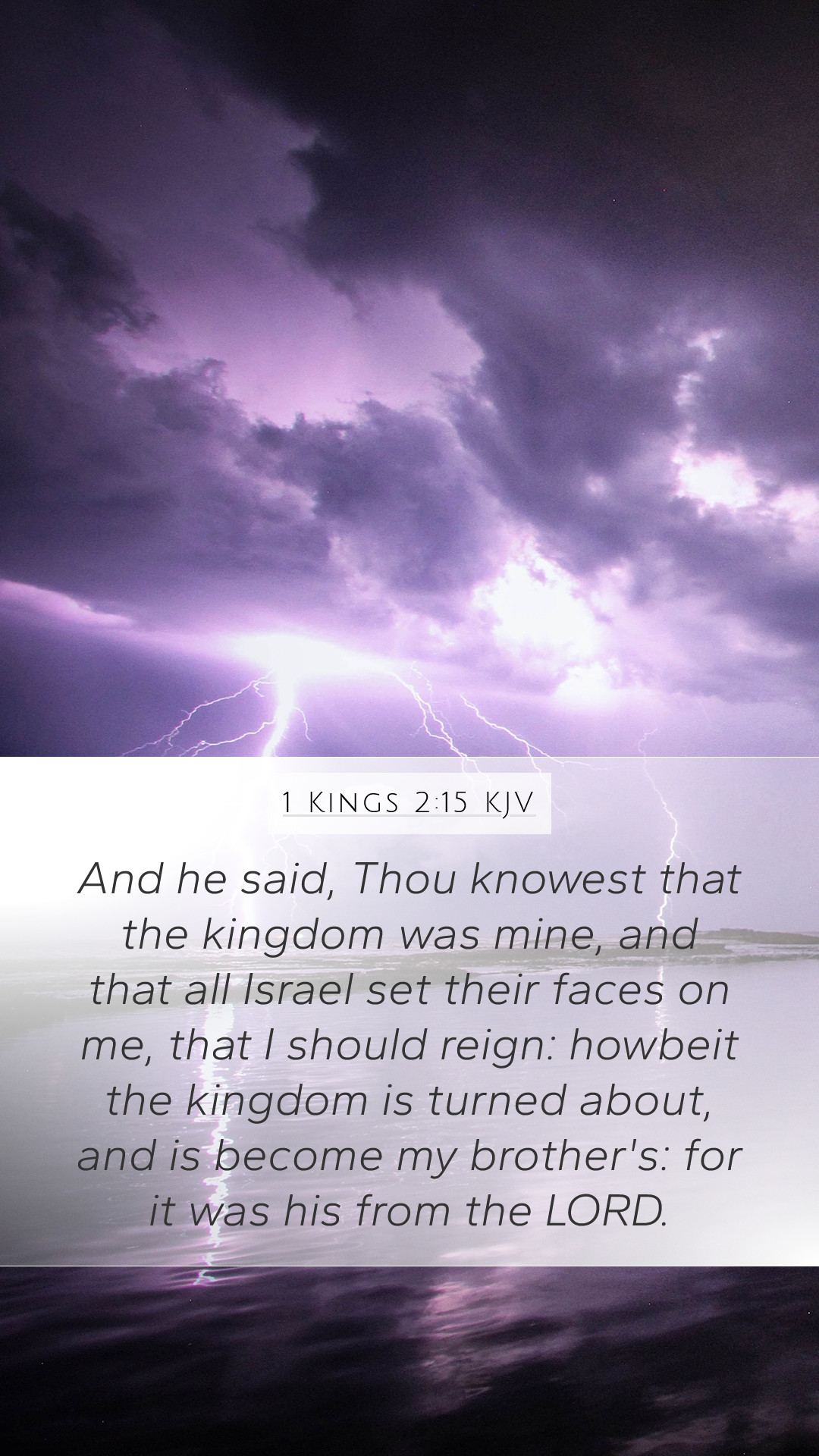Bible Verse Interpretation: 1 Kings 2:15
Bible Verse: 1 Kings 2:15 - "And he said, Thou knowest that the kingdom was mine, and that all Israel set their faces on me, that I should reign: howbeit the kingdom is turned about, and is become my brother's: for it was his from the Lord."
Meaning and Context of 1 Kings 2:15
This verse appears in the context of the transition of power during the reign of Solomon, following King David's death. Adonijah, who is speaking in this verse, is expressing his frustration and disappointment at losing the throne to his brother Solomon.
Biblical Commentary Insights
- Matthew Henry:
Henry emphasizes the tragic irony of Adonijah's claim to the throne. He notes that Adonijah was not anointed by God, but rather he tried to seize kingship unlawfully. This highlights the importance of divine appointment in leadership, showing that human ambition does not align with God's sovereign choice.
- Albert Barnes:
Barnes highlights the political dynamics within the family of David and sets the scene where Adonijah acknowledges the legitimacy of Solomon's reign, despite his own claims. He illustrates that Adonijah's statement reveals the struggle between earthly aspirations and divine will—showing that, ultimately, God’s plan prevails.
- Adam Clarke:
Clarke delves into the implications of Adonijah's realization of Solomon’s kingship. He interprets this moment as a crucial turning point that establishes Solomon not just as a ruler, but as a divinely ordained leader, further solidifying the theme of God's control over Israel's monarchy.
Theological Implications
This verse encapsulates several key theological themes such as:
- Divine Sovereignty: The verse illustrates that while individuals may have ambitions and desires, God’s purposes ultimately prevail.
- Human Ambition vs. God’s Will: Adonijah's plea serves as a reminder that human schemes can often lead to conflict, particularly when they oppose God's appointed order.
- The Nature of Kingship: The notion of a divinely sanctioned king, as embodied by Solomon, reinforces the biblical principle that leaders are accountable to God, not just their constituents.
Application and Reflection
For contemporary readers, 1 Kings 2:15 serves as a reflection on the nature of ambition and leadership. It invites individuals to consider the following:
- How does one’s ambition align with God’s purpose?
- In what ways do we seek validation and authority in our lives, and do they honor God?
- What lessons can be learned from the conflict between Adonijah and Solomon regarding submission to God’s will?
Cross References
- 1 Samuel 16:1 - God's choice of David as king
- 2 Samuel 7:12-13 - God's promise to David regarding his lineage
- 1 Kings 1:5-7 - Adonijah’s attempt to claim the throne
- Proverbs 16:9 - The heart of man plans his way, but the Lord establishes his steps.
Final Thoughts
In conclusion, understanding this verse involves examining the broader historical and theological context within which Adonijah's words are situated. Through Bible study insights and scripture analysis, we come to appreciate the divine narratives that inform biblical texts and teachings. Such reflections guide practitioners in their Bible study groups and online Bible study resources, furthering their awareness of the rich layers of Bible verse meanings and interpretations.


